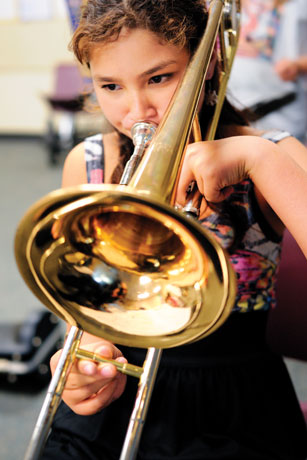 For most of us, back-to-school was a time of great excitement and anticipation — it was a chance to reconnect with friends, meet a new teacher and settle into a predictable routine. After class was dismissed, you probably remember favorite after-school activities — football or soccer practice, tap class, chess club or swimming lessons. These social experiences were an important continuation of the school day, and helped shape your interests and life outside of the classroom.
For most of us, back-to-school was a time of great excitement and anticipation — it was a chance to reconnect with friends, meet a new teacher and settle into a predictable routine. After class was dismissed, you probably remember favorite after-school activities — football or soccer practice, tap class, chess club or swimming lessons. These social experiences were an important continuation of the school day, and helped shape your interests and life outside of the classroom.
Involvement in extracurricular activities can be a transformative experience for kids in foster care, and gives youth the chance to meet new friends, coaches and mentors. Research shows that involvement in extracurricular activities can also help improve a student’s attendance, behavior and course completion at school.
At Treehouse, the Little Wishes program helps to pay for these essential childhood experiences for kids in foster care. Over the years, it’s been incredible to see the ripple effect take place right in front of us — a single activity has the ability to change the academic course of a student for a month, a year or for the rest of high school and beyond.
Here are just a couple of examples of how after-school activities can positively impact your youth:
Fall Sports
Participation in sports can be an especially rewarding experience for youth. It’s an easy way for them to make new friends, improve their physical, emotional and mental health, as well as develop important life-long skills. The experience of a team sport can help children:
- Strategize. Having a better strategy enables teams to win matches against teams of equal or greater physical ability.
- Be a team player. Success requires excellent teamwork! Players have to communicate, trust one another and support each other to carry out game plays effectively.
- Develop character. Physically challenging sports teach players to persevere through difficult times and appreciate the value of a strong work ethic.
- Build confidence. Athletes of all kinds often find they are well respected by their peers in school, and this esteem inspires pride in their accomplishments as a team member.
The Arts
Exposure to the arts plays an essential role in a youth’s development and exploratory education. By participating in artistic activities, children can experience dramatic improvements in their self-esteem, enhance their short- and long-term memory, and learn to manage stress in a healthy way. The arts can also help teens:
- Improve grades. Children taking music lessons have significantly higher language and mathematics test scores than fellow students who don’t study music, regardless of household income level and education.
- Develop creative thinking skills. Art is the application of creative thinking. Creative thinking skills have many positive applications outside of the art studio, and the ability to think outside the box can help youth stand out from their peers.
- Build confidence. Children who express their uniqueness through art gain confidence and a sense of identity.
 |
About TreehouseTreehouse makes a difference in the lives of thousands of Washington foster kids by helping with school, fulfilling key material needs. Learn more about Treehouse and the essential services and programs the organization provides for kids in foster care and how you can help give foster kids a childhood and a future. Treehouse and other local nonprofit organizations supporting youth in foster care rely on the generous contributions of the community to make their programs possible. Treehouse is 90% privately funded and relies on the support of more than 7,000 donors every year. |









